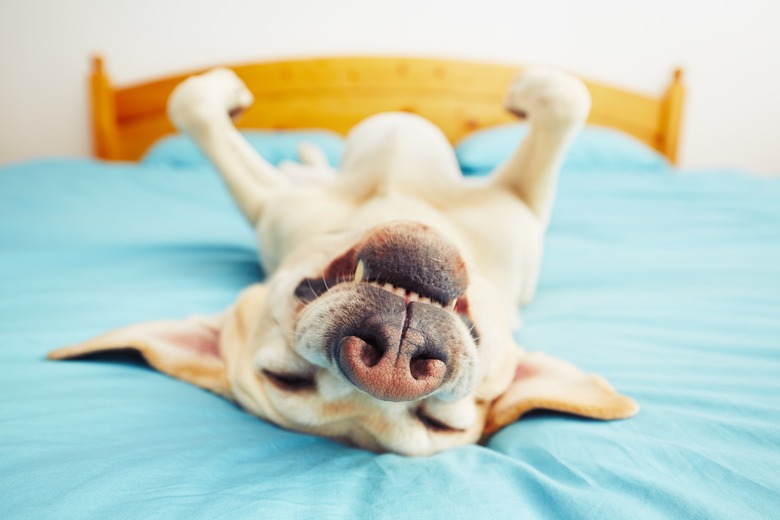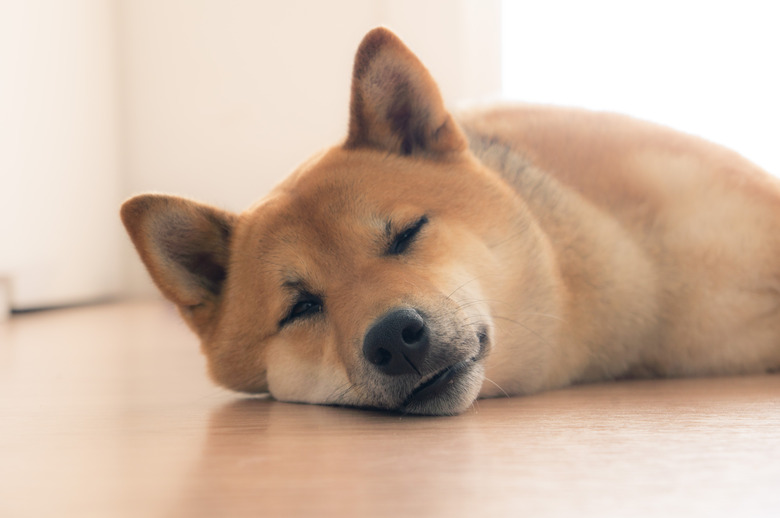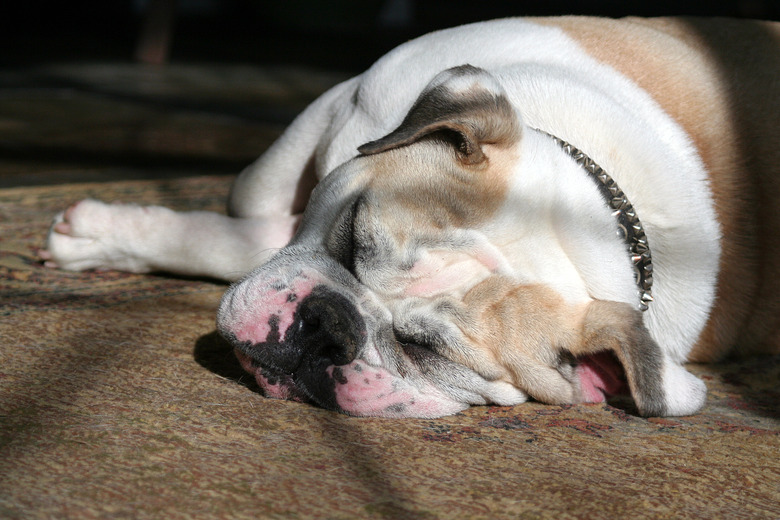What Happens If A Dog Breathes Hard When Sleeping?
Many pet parents become alarmed by the loud noises coming from their sleeping dogs. When a dog breathes hard while sleeping, it does not always signal a problem. These noises could be just a normal occurrence in your particular breed of dog. If you have concerns about unusually hard or noisy breathing coming from your dog as he sleeps, consult with your veterinarian to determine whether a health issue is causing the problem. You may have to learn to live with the noisy breathing as a normal part of life with your canine companion.
Puppy wheezing in sleep
Puppy wheezing in sleep
It may be disconcerting to hear your new puppy wheezing in sleep. This could happen with a short-snouted breed. Some breeds of dogs have particularly short snouts that cause air to make noise as it travels through the nasal passages. The air may also rattle the soft palate in the back of the dog's mouth. This effect may appear to be hard breathing but is perfectly normal for the animal.
Check for respiratory infection
Check for respiratory infection
Respiratory infections of the lungs, throat, back of the mouth, or nasal passages can cause narrowing of the airways and hard breathing in dogs. A veterinarian will do a cursory examination of the animal for signs of infection. Fever often accompanies these infections. The vet may prescribe an antibiotic that eliminates the bacteria and helps to quiet breathing.
Foreign bodies in nasal passage
Foreign bodies in nasal passage
Dogs investigate the world with their sense of smell and occasionally sniff up foreign matter that can lodge in their nasal passages. These objects can then cause hard or noisy breathing when the dog is asleep. This is because the air flows over the partial blockage. If you hear your dog breathing loud, and you suspect a blockage in the dog's nasal passages, consult with a veterinarian. Your vet will examine the animal visually, and order X-rays or other tests to determine if surgery is needed to extract the object.
Scan for nasal tumors
Scan for nasal tumors
Tumors in the nasal passages can grow to a size that cause noisy breathing, discharge, sneezing, and bleeding. To determine if your dog has cancer or other growths in the nasal cavities, your vet will order X-rays, an MRI, or a CT scan of the animal's head. If growths are found, your vet may order a biopsy to determine the type of cells that form the growth. Surgery may be needed to remove benign growths from the nasal cavities. Radiation and chemotherapy are the current treatments for nasal cancer in dogs.
Dogs with genetic diseases
Dogs with genetic diseases
Some breeds may be particularly prone to medical problems in the nasal cavities. The Cavalier King Charles spaniel, for instance, can develop malformations in the muzzle, larynx and throat tissues that obstruct the flow of air through the dog's nasal cavities. Open-mouthed breathing and noisy breathing are common symptoms, along with snoring, retching and lack of energy from lack of oxygen, according to the the CavalierHealth.org website. Corrective surgery may be needed by a certified veterinary surgeon.


